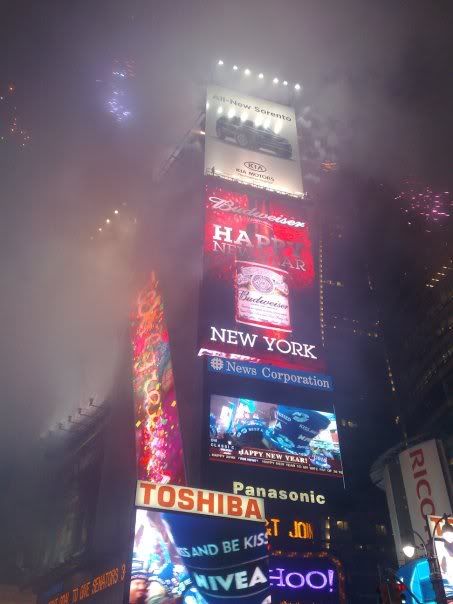Social Indicators: Women’s Rights and Public Transportation
What would you call a good development indicator?
As a good friend and I discussed feminism and society, she told me about a hypothesis that argued that an overview of women’s rights and public transportation would indicate a country’s development level. While a cursory overview on Google did not yield any searches as to who came up with this theory (do you know? please comment if you do!) the theory proposes an intriguing concept. Really, what better and far-encompassing indicators could you find?
Furthermore, what about women’s rights in regards to public transportation? Could the status of women’s relationship with public transportation be the ultimate, and quickest, indicator?

The New York MTA subway, 1940s, taken by Stanley Kubrick. Sourced from The Daily Mail UK.com 22 April 2012.
Public transportation: Ah, my favorite of travel topics. Unfortunately, I cannot compare the subways of developed countries to those in “developing” countries, since I have only ever road the systems in Europe, Canada and the USA. Barcelona’s subway system probably wins, but Montreal’s comes close on it’s heels. That being said, the United States is (arguably) more developed than either Spain or Canada, and yet the NYC subway system absolutely sucks (I’m looking at you, R train which no longer goes into Manhattan). If a country has a subway system, especially an advanced one (and more than one system throughout the country!) than you know that it has a well-organized government, since planning a subway is no easy task (ahem, MTA and the 2nd Avenue subway line). Furthermore, the country must have the technological capability of building the subway, not to mention a large enough budget to accommodate such a costly venture. And furthermore: this means that the government cares!
Women’s rights: If women have rights- i.e. they can vote, run for office, hold any job a man can, learn how to read, get a divorce, etc.-then one can safely assume that the rest of society enjoys equal benefits. Not only is the society equal, but one can also assume that the country has a developed economy with a passionate activist sector, NGOs and even a democratic government, because only countries that have enough money have enough time to care about human rights (that’s why philanthropy is relegated to the rich, folks).
Millions of women around the world take public transportation each day, whether they take a bus, train, subway or even a taxi. Although I would certain want to argue this when trying to take the subway during rush hour in New York, it is safe to say that public transportation in the West is advanced enough to more or less accommodate the number of riders.
But what about transportation in heavily populated places like China or India? Like the infamous train photos of India showing people practically hanging out the windows? What happens to the women taking these trains and buses; don’t they run the chance of being groped or molested in such tight quarters?
As a young woman who takes the subway every day, I feel very strongly about taking public transportation. Although I have never had any sort of direct threat from someone, I do feel that, especially in certain areas, one has to watch out when they’re in the subway stations, or in a subway car alone at night. Granted, New York has certainly cleaned up since the days when the subways were covered in graffiti, inside and out. It’s safer now for women, because New York developed. It grew….into a giant, Disney Land-esque yuppie consumer paradise.
Some countries try to avoid sexual harassment by giving women separate cars on subways. Although they may be averting the problem, this does not mean that the country is necessarily developed because, after all, they are avoiding a problem, not dealing with it. Public transportation is meant for the public: the young, the old, men and women.
A girl in my research methods class revealed that she is going to be questioning women about their commutes on public transportation. I think it will be a very interesting survey, and one thing is certain: she’ll certainly have an opinionated response if she interviews me!
Miley Cyrus and Young Women: Too This and Too That
Even if you are not a teen or fan of pop music, you have most definitely heard about popstar Miley Cyrus’ performance at the MTV Video Music Awards on Sunday Night.
If you didn’t actually watch the show or see the clip of her performance, then you will probably be confused when you hear me say that I believe that Miley Cyrus does not deserve the criticism she has since garnered for what was certainly a memorable (and infamous) VMA set, because you will have read all the reviews of the show and they’re basically all bad.
If you did watch the show or see the clip, you’re still probably confused that I am defending a barely-out-of-her-teens former Disney star who paraded around in a tacky bear-print bathing suit and then a nude lingerie set, rubbing her nether-parts with a big foam hand (like the ones people use at football stadiums). What on earth can possibly be defended about her antics?
Lastly, you’re probably also wondering what Miley Cyrus and the VMAs have to do with international affairs or human rights or my favorite topic, feminism. What was so important about her dancing around a stage like a club-goer hopped up on Molly (the strangely popular drug-yes, real drug-which seems to have infiltrated popular culture in an accepted way that no other hard drug has gone before, but that is a discussion for another time)? And how was it related to feminism?
The Onion produced a satire piece on Ms. Cyrus’ sexy set, with another Meredith (Artley, of CNN) explaining why an after-article of Miley made it into the coveted “Big News Item” part of CNN’s website: “It was an attempt to get you to click on CNN.com so that we could drive up our web traffic, which in turn would allow us to increase our advertising revenue.” This is probably, unlike most Onion pieces, 100% true. Advertising helps make the world go round because people are so desperate to earn money that other people will pay them to put their ads on their (TV channel, radio station, bus side etc.). The sheer number of articles/reports on Cyrus indicates also that a) Americans have nothing better to talk about (like Syrian chemical warfare), because they don’t care about anything serious and b) that female sexuality is still seen as a sign from the devil.
After intensive reading up on Muslim women, whom some super-conservative/fundamentalist Muslims view as seductresses eager to bring men into hell (and thus should be avoided), I think it is-maybe?- safe to say in the wake of Mileys twerk-fest that, even in the Western world where a national news station like MTV allows its stars to sing and dance about in next to nothing, that female sexuality is still a weird sort of taboo. Indeed, let’s look at that sentence again: MTV allows its female stars to perform in sexually suggestive outfits and dance seductively, in the assumption/assurance that viewers will appreciate the look, and while viewers may critique these women until the cows come home, they certainly, I might add, expect the women to be dressed as such.
This is a problem all women face, whether you are an overexposed celebrity like Cyrus or an average woman, like an engineer. I bring up engineers because of a recent article on Europe 1 in French which reported that female engineers who posted a photo of themselves on their LinkedIn profiles were being discriminated against for being…too beautiful. Quoi? Apparently French technological company Toptal had sent out a recruitment campaign that featured real ingénieures who, apparently, LinkedIn felt were too pretty to possibly be engineers and, deeming the campaign an ad for something else (say, prostitution) they blocked the ads. Again, I say: quoi????
As women, we are either too pretty, apparently, or too ugly. We never can win in the beauty game. A woman who is an engineer (and, presumedly thus smart) cannot possibly, in our minds, actually be attractive. She must be a troll, manly-looking, since she likes math and science! If we’re too pretty, we’re considered stupid, dumb, flaky…but we will probably get you to hold the door for us, or carry our groceries to the car. If we are pretty we are overlooked, not chosen for the administration position in the all-boys firm, told we need to lose some weight or dress differently. Where is the happy medium?
Female celebrities are obviously hit most hard with the looks rate-o-meter, and again it doesn’t make sense. LAdy Gaga, who has recently been swanning around in burqas of all types and odd headgear, has been criticized for her attire. Sure, most of the critique is based on the fact that the burqa is seen as a religious symbol of Islam (ha!) but nevertheless: if she had put on the robes sans head/face covering we would have heard it said that she was becoming too conservative. But yet if she strips down to a mermaid-shell bikini, like she did at the same VMA’s Miley Cyrus earned her place in infamy at, her body is up for grabs-at least metaphorically, anyways. The host, who I found absolutely disgusting, kept mentioning Gaga’s ass and how he wanted her “yams”…yams, as though she was food, a piece of meat (no comment on her former MTV meat outfit) and not a human being.
If Miley had danced in a long-sleeve t-shirt and jeans, we probably would have yawned with boredom (there were similiar critiques of artist Rihanna’s tank-and-jeans VMA outfit, wondering if she was sick or something because of the casuality of the ensemble) and demanded something else. If she had sat in one place crooning a la Bruno Mars, one of the night’s male performers, we probably would have also yawned. But because she is female, young and attractive, we expect her to dance, even though she’s no Britney Spears (you have to admit, Britney was a good dancer back in the day). Speaking of Britney-she has performed in similiar risque outfits, and sure, people have talked afterwards, but it was not half as extreme as it has been with Miley, despite the fact that she was a former Disney star too. The problem with Miley is that she was a Disney star, wholesome and innocent, until not too long ago…
I was not shocked by Miley’s performance. Her outfits, Robin Thicke’s outfit, the dancing bears-they were all ugly and tacky, but none of this surprised me. Pop stars have never been notorious for dressing elegantly, and while I sure as hell would never have rocked that weird knob hair-do on her head, she surely had the right to rock it. Do I bemoan what today’s artists dress/act like? I certainly could, but then critiquing the next generation (even if you are roughly the same age as them) is something that each consecutive generation has done (certainly my idols, the Spice Girls, were queens of tackiness most of the time).
As for her twerking and dancing? I think twerking is gross, but it is not disimiliar to the bump-and-grinding that was popular when I was an undergraduate. I think it was tasteless, lewd and crude, but again, I am not surprised nor shocked. I do think she could have done without the imaginary crotch-grabbing, as well as touching herself “down there” with the foam hand. But, to be fair, if a guy had done all that, would anybody still be talking about it? They might think it lewd [at the time], but it sure as hell isn’t going to be news two-three-plus days later.
So while her whole act was not my taste, I will defend Miley Cyrus because she is a young girl who was having fun. Was anybody hurt (besides, perhaps psychologically, her tween fans)? No. Was she doing something that most people her age don’t do? No. What she did was legal. She was dressed just as the average American female does when she goes to the beach. She’s growing up. She’s sexual. Why can’t America leave female performers alone? Why can’t we admit that they might be having sex, and that that’s ok? That they’re allowed to have sex because we’re having sex, and if they’re confident about their looks and attitude, well: all the better, I say!
[Note: did anyone critique Robin Thicke on the fact that he participated and definitely rehearsed with Ms. Cyrus prior to the show? He is not immune here, especially since his song itself is also inappropriate, even if it does have a good tune].
Does Miley need to be shamed across world news as countless journalists and pundits have done in the wake of the VMA’s? No; she didn’t deserve that. America, wake up and realize that if you expect something, don’t complain when you get it. Whether we’re too much or too little, we’re women, and you better take us the way we are.
Sources
1. http://www.theonion.com/articles/let-me-explain-why-miley-cyrus-vma-performance-was,33632/
2. http://www.europe1.fr/High-Tech/Quand-LinkedIn-trouve-des-ingenieures-trop-belles-1603575/
3. http://www.rollingstone.com/music/news/guest-op-ed-was-miley-cyrus-vma-performance-a-parody-20130827 Par Sarah Marcus, 27 August, 2013.
Montreal: Transportation!
One of my favorite things to do now when I travel is to rate the various transportation systems that exist. Besides riding the big yellow school bus every day as a kid, I never had much exposure to public transportation until I moved to the city, and have since learned to hate it passionately, although I equally hate driving. Public transportation can say a lot about where a country is at in its development stage, as well as a lot about the people who live there.
Riding into Montreal on a 8-hour Greyhound bus ride from New York City, is not the most comfortable of options, but our first view of Montreal out the bus windows was: the bus takes a stunning route across the Pont Champlain bridge. Pont Champlain is a huge brown behemoth stretching in vain across the St. Lawrence; it certainly isn’t going to win any architectural prizes. The Pont Jacques Cartier, which connects Ile Montreal to Ile Ste Helene and the mainland, is a shorter and more attractive structure.
I didn’t get a chance to ride one of Montreal’s buses, nor did I take un taxi, but I will say this: Montreal boasts far more pleasant streets than Manhattan. For one thing, it’s probably one of the few places in the world with an ‘Arret’ stop sign (you know, instead of those that say STOP). Even the signs in France say ‘STOP.’Streets were wide with huge bike lanes so it’s not considered an act of insanity to ride a bike in Montreal like it is in New York; many people were biking merrily away.
I did however get to take one of the Bateaux Mouches a la Parisienne, and even though I hardly consider sitting in a glass structure without getting any water sprayed on my face boating, it was still a nice experience, especially when the water became particularly choppy and we bopped up and down. There’s a ferry connecting to Ile St. Helene and the mainland, and huge Norwegian Cruise ships and steamships ply the river, which means you can even hitch a ride here from a far-away locale if you desire a more leisurely approach than the Greyhound.
Le Metro
Montreal has a Metro, and it is marvelous! It may be a bit small, but then again Montreal isn’t a huge city, so it’s rather impressive that they even have a Metro. Other con: it only runs until about 2 am or so in the morning, so it’s not 24/7, but the facts below more than make up for these cons.
1. It is CLEAN. There are garbage cans everywhere, and most stations actually have bins divided into recyclables (!) Nothing is grimy or damp like in NYC’s MTA (gross.gross.gross).
2. There’s artwork! OK, so every subway system has some sort of artwork (the Lincoln Center stop on the MTA, for example) but Montreal’s stood out for their colors: bands of coloured glass lining a hall, or a mural of shapes letting in natural sunlight (particularly at the Montmercy stop).
3. Most stations have more than one vendor. Subterranean shops are very popular in Montreal, and most subway stops have at least one shop of sorts, or at the very least a vending machine (they have Red Bull vending machines!) Station Guy-Concordia
4. Stations and adverts are all in French. And the ads are usually more local, featuring Montrealer restaurants serving things like Salade du falafel. And Celine Dion.
5. The stations are wide with high ceilings, so they don’t induce claustraphobia like most metro systems. They’re much more open and the trains aren’t on deep tracks that seem like dangerous bottomless pits a la New York.
6. Trains are blue. Seating is a little questionable (they didn’t try to conserve space/make more space at all) but this doesn’t seem problematic like on the MTA: people aren’t pushing and shoving. The ride isn’t noisy nor is the train rattling like it’s about to fly off the tracks.
7. It’s cheap. An unlimited Metro weekend pass was like $10 Canadian dollars or something crazy like that. I was impressed.
8. There are more benches at the stations then I’ve seen elsewhere, and they don’t look dirty. Some benches are built into the wall.
9. There are plenty of Bell Telephone System payphones, in case your cell phone gets stolen or something (fat chance of that happening in Canada).
10. Trains arrive CONSTANTLY! There always seems to be one arriving, and they’re so punctual that the doors start to open even before the train has come to a complete stop (not as dangerous as it sounds, lol).
Le Metro de Montreal, I give you two thumbs up!
Montreal: A World City
Taking a break for a moment from all the human-rights stuff, let’s enjoy some iphone pics I took on my trip last weekend to Montreal, Canada.
Montreal’s main draw for me was the fact that French is the city’s official language. As a Francophonie (French speaker) who hasn’t visited France in almost 3 years, I was dying to get some of that joie de vivre (read: French bread and crepes). After an almost eight-hour Greyhound bus ride, my husband and I arrived in Montreal Friday night and, despite our short stay, I was pleasantly surprised to discover how diverse, cosmopolitan and interesting the city is
Montreal is considered a world city: the Globalization and World Cities Research Network categorized Montreal as a “Beta +” world city in its 2008 report. World cities are usually designated due to their population and physical sizes, cultural diversity, role in world economics and world politics.; Professor Saskia Sassens of Columbia University wrote in Foreign Policy that a world city must “reinvent itself” and reinvent Montreal has: in a city where Canadian bagels, poutine and French-flavored crepes must now jostle with cuisines from all over the world, Montreal has no doubt embraced the Whole-New-World concept.
Here, 10 reasons why Montreal (culturally, at least) is a good world city.
1. French is the official language… but it’s OK to speak English. I mean, obviously, since Quebec is not its own country, it is a part of Canada, and Canada’s main language is English. Everything is in French: all the adverts, signs, voice on the Metro; menus and tourist areas translate into English as well. To me, this is the number-one indication of a world city if more than one language holds political sway. Book stores sell both French and English books, which means that Montrealers (yes, that’s its demonym!) are exposed to everything wonderful the Francophone culture possesses as well as the English one. It also means that they can communicate with people from every region of the globe.
2. Everything is CLEAN. Did I mention it’s clean?? Not all designated world cities are clean (*cough* fellow Beta+ city Cairo) but cleanliness indicates that a) people have the time/wealth/knowledge to care and b) their government has the money/inclination to do something about it. It also means that the city is serious about environmental health, a major point of disagreement among world cities. Montreal was so clean you could eat off the streets; garbage cans in the Metro were neat and tidy and were separated into recyclables. There were park benches! and they were so clean they looked brand-new. A clean city is a happy city.
3. The Metro ROCKS. For me, I would definitely use public transportation as a deciding factor for labeling world cities, and Montreal passes with flying colors. The Montreal metro is super-clean, fast and aesthetically pleasing-and not at all claustraphobically overwhelming. More about this in my next post, but efficient transport=happy citizens
4. Tourism. So tourism should definitely factor into what makes a world city; if no one wants to go there in their time off from business stuff and saving the world, then why should we deem it worthy/safe/stable enough to be a world city? Furthermore, a lack of tourism means that there’s nothing even architectually pleasing to see. Montreal is a popular tourism destination thanks to its Vieux Port, and it has its fair share of tacky tourist shops selling Canadian flag keychains and t-shirts with obscene French jokes on the front.
5. The drinks are stronger. Alright, this doesn’t really make Montreal a world city, but it’s nevertheless a cool fact about Montreal. And isn’t drinking the international language of how to make a deal-at least in the Western world? Seriously: even though Riyadth is considered a “Beta” city, and Jeddah and Kuwait City are considered “Gamma” cities (Saudi Arabia and Kuwait are dry countries), I don’t feel like a world city should be so uptight as to ban alcohol. In fact, I don’t feel like Riyadh, Jeddah or Kuwait City should be on the world cities list, not just because alcohol is forbidden but also because they are not interested in democracy, personal freedom or cultural liberation. Montreal, on the other hand, serves up strong drinks-and isn’t overly anal about carding people at the bar. Or maybe the drinks are strong because the bartenders know how to bartend-i.e., they actually put brandy in the sangria, not just cheap wine, which my father says most American bartenders do. Montrealers are doing their damn job.
6. Breathalyzer Tests! OK, so even though a world country should allow the consumption of alcohol, said country should also care about its citizens health and safety. Hence, Montreal has breathalyzer tests posted in the city; I found one located inside the Bon Secours Market. Just pay, breathe out, and voila! Should you drive or not? That way Montreal has less vehicle accidents and vehicular manslaughter cases to deal with (je te vois, Etats-Unis!)
6. TamTam’s. Drum Circle.An internationally-minded city should be a melting pot of cultures, no matter how subtle the voices. A drum circle may not change the world, but it is indicative of a relaxed and tolerant culture which is open to the integration of other cultures as well. Most of the people attending TamTam’s
8. Location on the St. Lawrence River. How many times do we have to hear the word location, location, location? OK, so I personally feel that Montreal has a crappy sort of location (if the ocean is more than 3 hours away, I call the location crappy unless it is London or Paris) but if a world city cannot be near the ocean/sea than it better damn well be located on a river. At least the St. Lawrence is a strong and imposing river (you can even surf on the rapids on a small section of the river in Montreal!) that can be plied by huge Norwegian cruise ships and freighter steamships, not to mention the Bateaux Mouches boat I took. Indications of what Sassins calls the world-city requirement “infrastructure of international trade,” having a harbor really is important for a world city.
9. The diversity! The youth scene! If there’s no scene for young, hip people, how can culture and innovation flourish? Montreal has a diverse population, requirement no. 2 of a world city: I saw countless ethnicities represented. Its got grand basiliques catholiques and humble mosques, rue Jacques Cartier with its imported-from-Paris outdoor cafes and New Zealand-born street performers and Middle Eastern fast food joints scattered around the city. And Montreal’s busy nightlife means that the city doesn’t shut down after dark, another important factor: a world city shouldn’t have an early bedtime!
10. Bike lanes. Like the breathalyzer tests, Montreal’s bike lanes prove that the country is into both environmental and human health, which means that it’s paying attention to what’s what in global research. More bike lanes=more people are willing to risk riding a bike in the city, since the lanes are huge (NOT like in “New York) which means they might not get run over. Montreal is not terribly big, so biking doesn’t seeme like an insane option like it might in Los Angeles or Shanghai, it’s good for the environmental, flow of people, one’s weight and one’s wallet. International cities must care more about the environment and their people’s physical well-being!
Sources:
1. http://www.foreignpolicy.com/articles/2010/10/11/what_makes_a_global_city_global
Teasing-Thigh Billboards in Japan
Advertisements on women’s thighs.
I won’t hesitate to call it one of the most gross examples of our super-saturated, misogynistic capitalistic world. The female body has literally become a walking billboard for whatever businesses fancy-as well as sex, of course.
Because, really, how can one possibly look at a young girl’s thighs and, whether one is male or female, gay or straight, NOT think about sex? The adverts, touted by CEO Hidenori Atsumi and his PR company WIT and applied not unlike a fake tattoo, are not placed on the arm or calve or knee but right on a girl’s thigh. Interestingly enough, the thigh-verts are only attracting attention in the Western world now, but Japanese site The Asahi Shimbun reported on them back in January. If the premise was simply this-an advert on a woman’s thigh-it would be an all-time low for greedy capitalists, but WIT didn’t stop at that.
Women who want to be walking billboards-taking the concept of “promotional girls” to the extreme- have to be young. Not altogether surprising, since I doubt there are many women over the age of 25 who are lacking in such…self-dignity? But not any young lady can tease with her thigh: the girls must have at least 20 friends using Social Media (doesn’t seem too difficult, unless they mean ACTUAL, real-life friends, right?!) and are encouraged to wear short skirts (obviously) with, ahem, knee socks. Knee socks? I know the Japanese have a fetish for kiddy icons (I love Hello Kitty, I admit) and extremely “youthful” looking styles are the norm for girls way past high school (see the girls of Harajuku made famous by singer Gwen Stefani) but this just pushes the look into a sexual-make that pedophilic-territory.
Another likely, but not mentioned, requirement is that the young ladies be pretty. All of the ladies in the pictures were skinny and attractive, and while one might argue that these women are “models” and thus should be attractive enough to catch a man’s attention, in this case a plumper model would be a better model. After all, more thigh inches mean more advertising space! Think of the bonanza this company could make if they used an average American female!
But let me stop with the snark: ultimately, I feel that this is a new low for humanity. Why is it that women’s bodies are always a source of contention? Why are women’s bodies always up for sale? Why do we hear all about famous female supermodels but can anyone name one famous male model (OK, so i can name Mario Divinao, but I doubt many outside of Italy/Europe know who he is). At the same time we seem to celebrate the female body, we are constantly degrading it and poking at it, cutting it, shaving it, smoothing it, and now plastering it with conspicuous consumption.
I hate capitalism because, despite it’s merits, capitalism creates greedy people who do heartless things (see blood diamonds and modern-day slavery, two things I will talk about in future posts). I hate how society is constantly degrading females. I like models and photos and fashion, despite the hypocrisy that exists within these industries-and yes, they are sadly industries-but thigh billboards invite perverts to stare at women’s thighs and-God forbid-try to sneak a peak, a closer look. Having never been to Japan I can’t speak for Japanese society, but I know for a fact if women in New York City started sporting these stickers there’d likely be a lot of sexual harassment cases springing up.
Do the girls get paid for wearing these temporary tattoos? Yes. Are they forced to wear them? No-and in fact, there seems to be a stampede of ladies signing up to wear the tattoos for 8 hours a day. One might argue that this is just another way for women to empower themselves and earn some quick and-admittedly easy-cash.
But I ask this: would men ever wear the temporary billboards on their thighs? Would any PR maven dare to ask them to? I think not….
- http://www.dailymail.co.uk/news/article-2375732/Japanese-women-paid-adverts-THIGHS-catch-attention-men.html 23 July 2013
- http://www.guardian.co.uk/world/video/2013/jul/21/tokyo-womens-thighs-advertising-video
- http://www.guardian.co.uk/world/video/2013/jul/21/tokyo-womens-thighs-advertising-video
- http://ajw.asahi.com/article/economy/business/AJ201301010008 Jan 1, 2013.







































